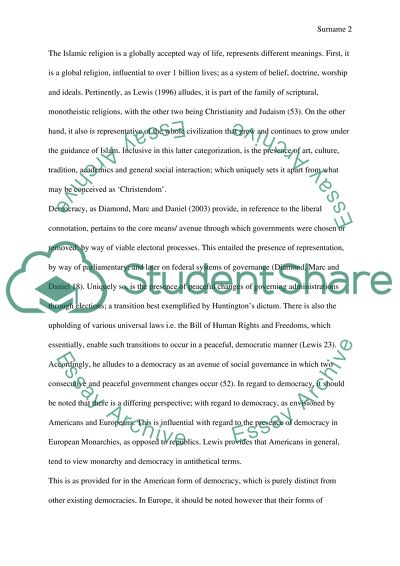Cite this document
(“Islam and Democracy: A Contextual Discussion Term Paper”, n.d.)
Islam and Democracy: A Contextual Discussion Term Paper. Retrieved from https://studentshare.org/politics/1633797-compare-and-contrast-essay
Islam and Democracy: A Contextual Discussion Term Paper. Retrieved from https://studentshare.org/politics/1633797-compare-and-contrast-essay
(Islam and Democracy: A Contextual Discussion Term Paper)
Islam and Democracy: A Contextual Discussion Term Paper. https://studentshare.org/politics/1633797-compare-and-contrast-essay.
Islam and Democracy: A Contextual Discussion Term Paper. https://studentshare.org/politics/1633797-compare-and-contrast-essay.
“Islam and Democracy: A Contextual Discussion Term Paper”, n.d. https://studentshare.org/politics/1633797-compare-and-contrast-essay.


